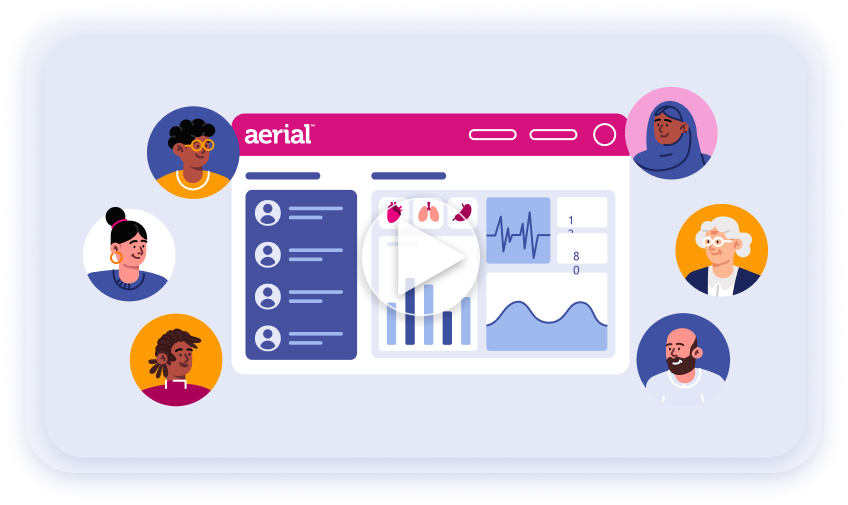
Trusted by Leading Health Organizations
The foundation risk-bearing organizations rely on to improve health outcomes, reduce medical and administrative costs, and personalize engagement — 4X faster.

Data, intelligence, automation, and workflow — perfectly aligned for undeniable value.
Transformative Impact:
Organizations using our platform have achieved remarkable results:
- Increased health goal completions.
- Reduced ER visits.
- Improved clinical efficiency.
- Boosted multi-channel engagement.
- Implemented 4X faster.
Effortlessly ingest and manage all data types in their existing formats—including real-time streams.
- Bypass complex data transformations.
- Quickly access a unified health view.
- Seamlessly integrate insights into your workflow.
Leverage our advanced analytics and AI to rapidly extract insights from data.
- Initiate timely, tailored interventions at pivotal health moments.
- Segment by risk to personalize care programs.
- Spot gaps in care and project risk scores to harmonize risk assessment across populations.
- Optimize workload management by aligning individuals with appropriate resources for targeted, efficient care management.
Digital Care Management, Utilization Management, and Population Health Management
Improve clinical workflow efficiency and impact and drive personalized engagement with advanced campaign orchestration, workflow, and reporting tools.
- Boost staff productivity and manage larger workloads effectively.
- Promote seamless collaboration across medical, behavioral, pharmacy, and community-based teams for comprehensive care.
- Leverage cutting-edge utilization management and automation to reduce costs without compromising quality.
Explore More:
Digital Care Management
Utilization Management
Social Care Coordination
Unlock the full potential of your data with a robust API platform and expert consulting support.
- Develop proprietary capabilities.
- Automate interactions.
- Enhance operational efficiency.
Our platform is purposefully designed to meet specific industry needs.
Start with critical use cases and expand as your business needs evolve.
Digital Care Management and Utilization Management Platform for Health Plans
Medecision empowers commercial and community health plans with a comprehensive platform that optimizes digital care management, disease management, and utilization management.
Improve outcomes, drive down costs, and personalize engagement with:
Population Health Management Platform for Health Systems
Drive better outcomes and minimize risks with Medecision.
Our platform enhances care coordination across the continuum, improving transitions, closing care gaps, and reducing unnecessary hospitalizations.
Experience top-tier value-based care with our advanced automation, seamless integrations, and configurable workflows explicitly designed for your care model.
Streamline Value-Based Care
Meet the diverse needs of members across employer groups and health plans, even those with intricate relationships and regulatory demands.
Enhance your support for risk-based agreements, delivering exceptional personalized service to the groups and members you serve.
Efficiently manage care and demonstrate ROI with robust tracking and reporting while reducing the administrative load of compliance with state, federal, and NCQA standards.
Medicare, Medicare Advantage, and Medicaid Population Health Solution
Medecision supports Medicare, Medicare Advantage, and Medicaid, enhancing care management, utilization, and population health.
Improve outcomes, meet CMS Star Ratings, and optimize HEDIS® scores. Maximize financial performance, operational efficiency, and member satisfaction with personalized, connected care experiences.
For Medicaid, we offer solutions that comply with varying state regulations and have the flexibility, automation, and tools needed to manage care for vulnerable populations efficiently across the nation.


